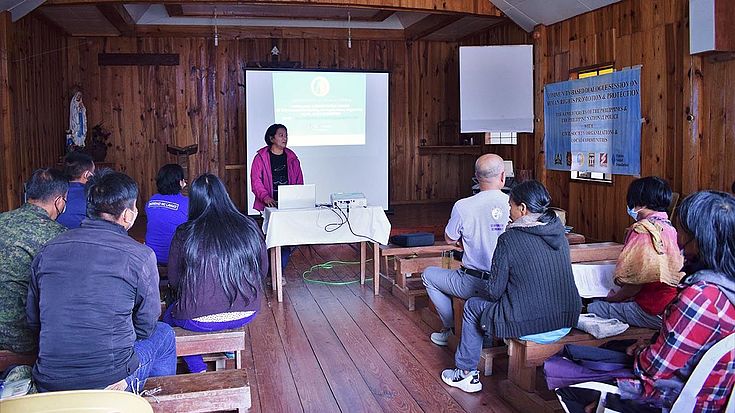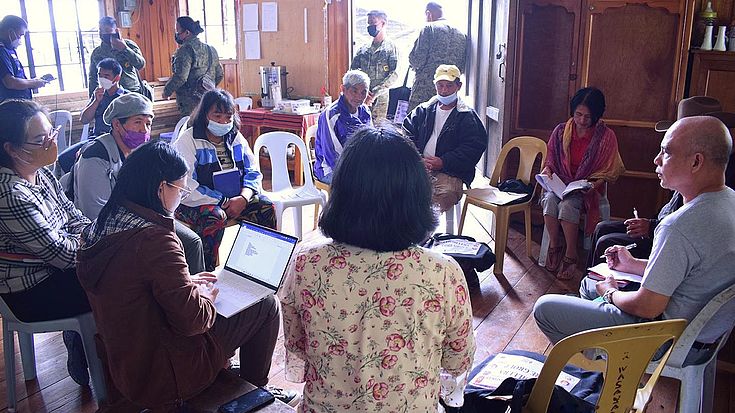Community-based Dialogues Project
A Look Back on the CBD in Sagada, Mountain Province
CHR
Northern Sagada particularly Barangays Aguid, Bangaan, Pide and Fidelisan are among the insurgency- affected communities in Sagada, Mountain Province and these barangays were represented during the CBD conducted on August 16, 2018 in Bontoc, Mountain Province.
The assessment gathered qualitative information through focus group discussions (FGD) with community leaders and members of the four (4) barangays in Northern Sagada; and interview with key informants (KII) from the AFP, PNP, LGUs (mayors/barangay officials) and CSOs; with the end in view to support qualitative improvement to the CBD project in the future.
Key evaluation questions were raised as a (i) review of the 2018 CBD and in (ii) assessing CBD as a process.
CHR
Some of the findings include: (i) no follow-up activity was conducted after 2018 (gap of 4 years); (ii) CBD and ‘tongtongan’ system (conflicts are resolved) are basically the same except the CBD moderator is an external actor; (iii) most participants see the CBD as a good avenue to raise their concerns provided that agreements are honored; (iv) improved relationship between security forces and the community (no evidence of direct attribution to CBD); (v) CBD is very effective in military operations; and (vi) some issues are recurring.
Among the recommendations were: (i) monitoring of agreements between parties in the dialogue if these are implemented; (ii) conduct of CBD should be made frequent until results can be seen; (iii) better to conduct CBD in barangays where most, if not all, community members can attend/be informed vs. sending representative/s to avoid suspicion; (iv) presence of ‘third party’ (CHR/core group) during conduct of dialogue; and (v) proceedings of dialogue should be documented and monitored by a third party to avoid community members blaming each other on the outcome.
The CBD project is a partnership of the Commission on Human Rights (CHR), Philippine National Police (PNP), Armed Forces of the Philippines (AFP), Alternative Law Groups (ALG), and Philippine Alliance of Human Rights Advocates (PAHRA), with support from the Hanns Seidel Foundation/Germany (HSF).


